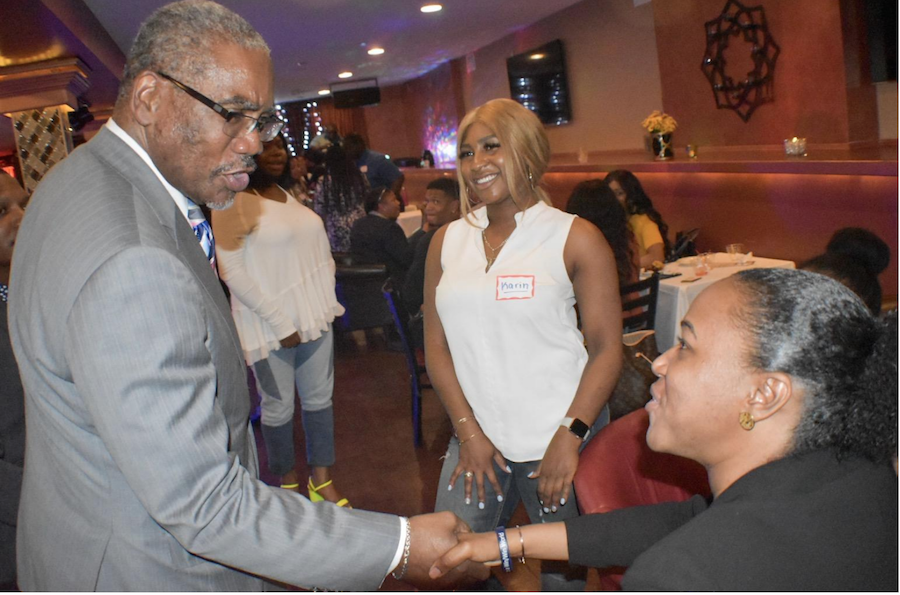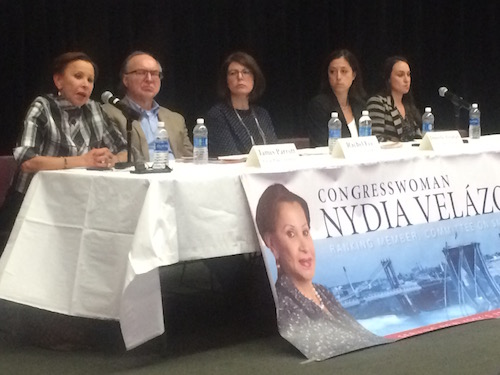Queens County Democratic Party Chairman U.S. Rep. Gregory Meeks (D-Jamaica, Laurelton, Rosedale, Cambria Heights, Saint Albans, Springfield Gardens, The Rockaways, JFK Airport) took a historic step onto the world stage earlier this month when he was elected as Chair of the House Foreign Affairs Committee.
Meeks fulfilled a dream that he aspired to for years when he was elected as the first Black Chair of the House Foreign Affairs Committee. A product of the Civil Rights Movement and a congressman in Queens for more than 20 years, he said he hopes to bring a fresh point of view to the committee and to the country’s foreign policy priorities.
“I’ve come from a different background, and different life experiences than many of the –– than all of the other chairs have had,” he said.
He plans on drawing on his nearly 30 years of experience working and legislating for Queens, first in the State Assembly then in Congress. In those three decades, he learned a lot about the world, and he’s ready to take those lessons to the international stage. Coming of political age in the crucible of Queens has exposed him to a variety of worldviews, he said.
“The voice that I bring, I think is the voice of a person who represents Southeastern Queens and represents Queens, that is a mini U.N. in and of itself,” he said. “What I think makes the United States the greatest country in the world, we’re not monolithic –– a little bit of this a little bit of that.”
Queens is the most diverse borough in New York City and has previously been dubbed the most diverse county in the country. According to the U.S. Census, nearly half of the borough’s population is foreign born and while white people make up 47% of the population, no one group has a majority.
Despite its diversity, Meeks believes in the idea of “One Queens,” –– a unified yet politically, ethnically and nationally diverse borough. He believes that mindset, and the compromises that come with it, can be applied nationally and internationally.
Although Meeks has been a politician since the early nineties, his political eduation began much earlier than that. He recalled sitting around the dinner table with his parents listening to them talk about the Civil Rights Movement. Later on he’d have conversations with the late John Lewis about the movement’s strategies.
“I’m able to do that now, and utilize many of the thoughts and ideas that they put forward and the strategies that they utilized,” he said. “That’s all part of who I am and this is what I’m going to bring to the table.”
Among his priorities are elevating issues in Africa, the Carribean and Central and South America, he said. Issues in those regions have previously been “backburner issues,” he said. He hopes to change that. In particular, he’s worried about the brewing conflict in Ethiopia.
“There’s a possibility of civil war, an internal war, breaking out so we need to be focused on that like never before,” he said.
He also wants to emphasize and encourage diplomacy over military action, he said. For nearly two decades, the country has operated under an Authorization of Use of Military Force (AUMF) which gives the president the power to decide when to use the military. It’s time for Congress to take back that power and for the AUMF to end, he said.
“We’re supposed to be the ones that determine when there’s supposed to be the use of military force,” he said, noting that diplomacy is a cheaper option.
And while he’ll be focused internationally, much of the work needs to start at home, he said. The U.S. needs to lead by example.
“We want to make sure that we all stand up and speak about human rights violations. But we’ve got to make sure that we do as we say,” he said.
He brought up the Black Lives Matter movement. The U.S. needs to understand, believe, and demonstrate that Black lives matter, he said, before it can criticize other countries for abuses.
“Then I can show how they matter in Colombia where there’s a whole host of Afro-Colombians, how it matters in Brazil, how it matters in all of the countries of Africa,” he said. “We can lead and that’s something that’s tremendously important.”









